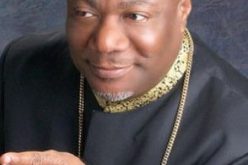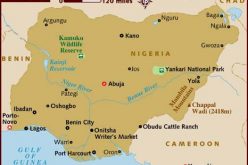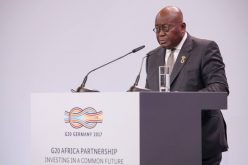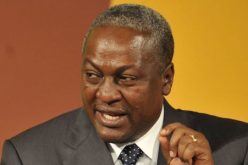 President Ellen Johnson-Sirleaf has submitted propositions from the Constitution Review Committee (CRC) to the Liberian Senate, rejecting the one to “Christianize” Liberia. On the other hand, President Johnson-Sirleaf wants the presidential and legislative tenures reduced.
President Ellen Johnson-Sirleaf has submitted propositions from the Constitution Review Committee (CRC) to the Liberian Senate, rejecting the one to “Christianize” Liberia. On the other hand, President Johnson-Sirleaf wants the presidential and legislative tenures reduced.
It can be recalled that in August 2012, President Johnson-Sirleaf constituted a six-member committee headed by Counselor Gloria Musu Scott, to amongst other things, arrange public discourses to solicit views from Liberians across the country, and other parts of the world to make some changes in the 1986 Liberian Constitution.
The constitution is regarded as the organic law of the land.
Delegates at a National Constitution Review Conference held in Gbarnga, Bong County from March 29-April 2, 2015, endorsed twenty-five (25) propositions to be changed in the constitution of Liberia.
In a communication addressed to the Plenary of the Liberian Senate, the highest decision making body, the President pointed out that she does not concur with proposition 24 of the constitution review process which seeks to make Liberia a Christian nation.
She stated that although Liberia was founded on Christian principles, founders of the country at the time did not enshrine Christianity as the nation’s religion in the constitution.
She noted that Liberians have over the years live and work together in peace and harmony regardless of traditional or religious beliefs, and as such, to make Liberia a Christian state now will foment division amongst citizens.
“I do not concur with the view Liberia was established on the foundation of Christianity. Nevertheless, the founders of the Republic did not put into the constitution a declaration of Christianity as the nation’s religion. The constitution has always allowed freedom of religion or worship. Seeking to prescribe one religion as a state official religion; to do so now, would foment division among our people based on religious beliefs. Liberians have lived together and have worked together willingly in harmony,” the President noted.
She added that the Liberian constitution clearly separates religion from the state as stipulated in Article 14 of the organic law.
Amongst other things, Article 14 states that: the Republic shall establish no state religion.
The Liberian Chief Executive also rejected proposition 4, which calls for private property ownership to include mineral resources.
According to her, the Liberian constitution provides that private property rights shall not extend to mineral resources.
She maintained that all mineral resources are properties of the government and are required to be used by and for the entire Republic.
She pointed out that these resources are “principle sources” of National Revenue and they are required to be used for the entire population, adding that, “I cannot support a constitution change that will deprive the State.”
She said ownership of citizenship by race basedon exclusion is incorporated in Article 27 (b) of the 1986 constitution.
Article 27 (b) states that “in order to preserve, foster and maintain the positive Liberian culture, values and character, only persons who are Negroes or of Negroes descent shall qualify for birth, or naturalization, to be citizens of Liberia.”
The Liberian leader mentioned that the 1986 Constitution also gives land ownership to citizenship as enshrined in Article 22 (a).
She said this proposition seeks to promote race discrimination and therefore, she (Ellen) cannot support what she called “continuous race based discrimination” of the constitution.
“I urge you to reject such racial discrimination and adopt changes consistent with advancements in the global community. I urge you to propose appropriate amendments to the constitution that will allow any human being who meets standards and the nation’s naturalization laws to become a citizen of Liberia irrespective of race,” she stated.
For proposition 7, which calls for dual citizenship not to be accepted in Liberia, the President did not give a clear position.
She said in consistent with the Alien and Nationality Statute enacted in 1972, and in consistent with the constitution, she accepts executing and support the nature of the constitution.
She said nations stand to benefit economically and socially from the input of these persons of Liberian heritage into the country.
The President further noted that dual citizenship yield sustainable economic growth and development.
She also rejected the abolishment of “tear- tear money” and dual citizenship, noting that it is a statute, and customary laws should be treated as constitutional laws.
Meanwhile, the Liberian Chief Executive has also endorsed propositions 1, 2, and 3 which call for the reduction of the tenures of the Presidency and Vice Presidency (from six years to four), Senators (from nine years to six), and Representatives (from six years to four).
She concurred with proposition nine which calls for the Vice President not to preside over the Senate.
She also endorsed the elections of Chief Justice (proposition 10), Superintendents, Commissioners, Mayors, Chiefs (proposition 11), respect and recognition of people with disabilities (proposition 12), election of commissioners of the National Elections Commission (proposition 13), women’s participation (proposition 18), amongst others.
Meanwhile, the Senators have sent the President’s communication to the committees on claims, petition and judiciary awaiting additional document from the Liberian leader.










